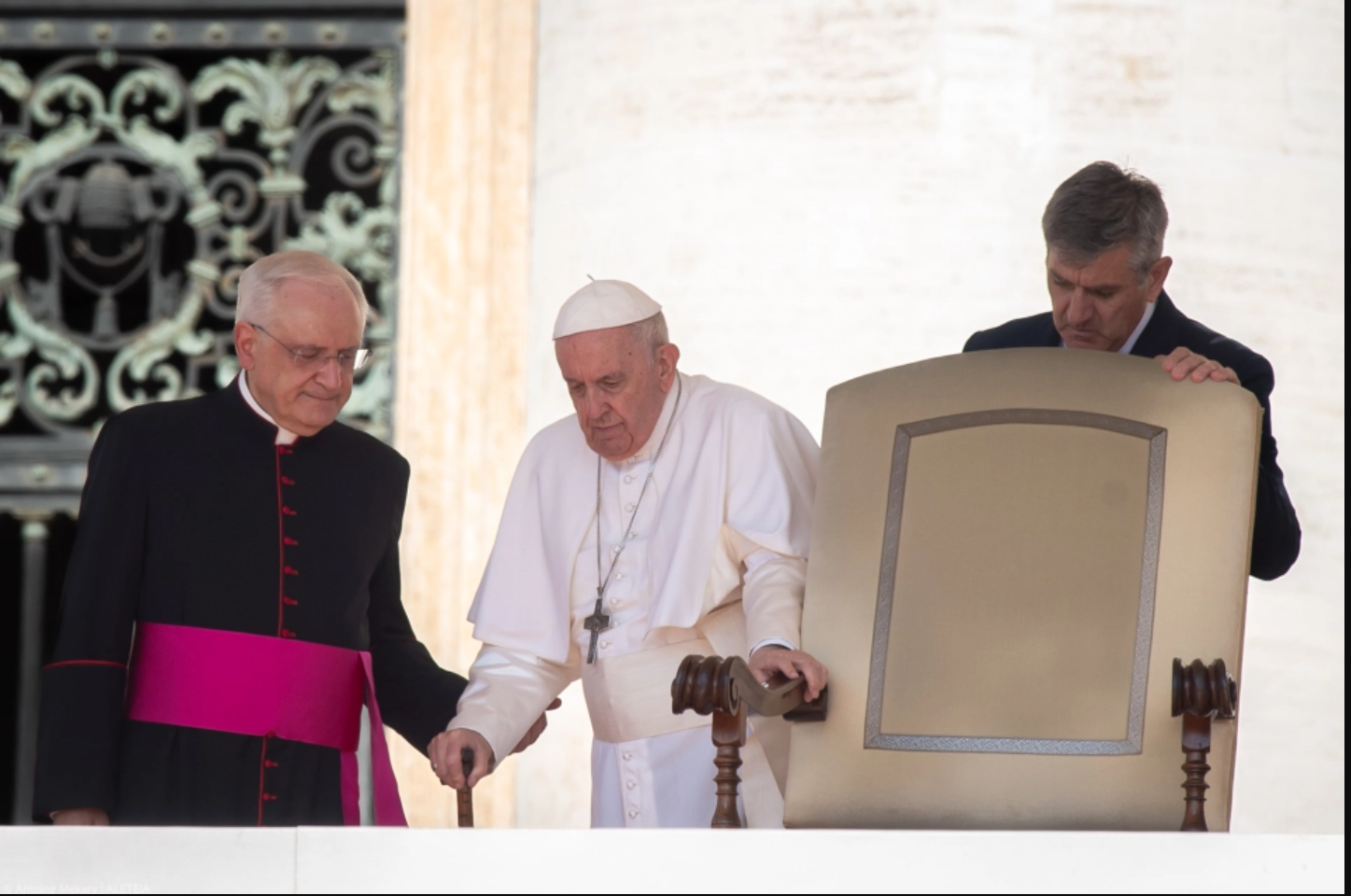Some wonder if security situation in DRC is another factor for cancellation, in addition to the Pope’s health.
After the Vatican announced on Friday that Pope Francis is postponing his trip to the Democratic Republic of Congo and South Sudan so as not to jeopardize the therapy he has been getting for his knee, the Pope spoke directly to these African peoples on June 12.
And now I would like to address the people and authorities of the Democratic Republic of Congo and South Sudan. Dear friends, with great regret, due to problems with my leg, I have had to postpone my visit to your countries, planned for the first days of July. I truly feel great sorrow for having had to postpone this trip, which means so much to me. I apologize for this. Let us pray together that, with the help of God and medical attention, I will be able to be with you as soon as possible. Let us be hopeful!
The trip to the African continent was scheduled to take place July 2-7. New dates haven’t been announced.
Health or security?
While the Vatican has said the cancellation comes at the request of the Pope’s medical team, others wonder if the conflicts in DRC could also be a cause.
“His doctors have warned the Pope that excessive effort currently could worsen the condition of his knee,” Matteo Bruni, director of the Vatican press office, told journalists.
Still, things in the DRC are not well.
Notably, on Monday, July 4, the Pope planned to visit the city of Goma, in the east of the DRC, where the security situation has deteriorated sharply in recent weeks.
In this region, government forces are confronting in particular the rebels of the M23 who are trying to impose themselves by means of massacres and abuses against a background of ethnic struggle. Violent attacks have taken place in recent days in this region of North Kivu.
According to a diplomat familiar with the matter, these elements could have led to the postponement of Pope Francis’ trip. “Apart from the subject of the Pope’s health, the degraded security in eastern DRC, the threats of an attack directly targeting Pope Francis and the marked terrorist threat during gatherings around the Pope – such as during Mass – certainly weighed in the balance,” says this source.
The Pope has noted on other occasions – for example in considering a trip to Ukraine – that it’s not just a question of his personal safety, but the safety of all those faithful who would gather around him during the trip.
The Vatican does not generally name the issue of travel security as a reason to explain a postponement. And Pope Francis hasn’t shied away from areas of conflict: In 2015, for example, he went to the Central African Republic despite the warnings of countries like France.
Canada too?
The Pope is scheduled for another international trip in July: to Canada from July 24-30. Bruni did not comment about that trip.
Depending on whether or not Pope Francis’ trip to Canada takes place, the hypothesis of a postponement for security reasons could gain weight.
In any case, it wouldn’t be the first time that a pope has had to back out or avoid a trip because of security reasons. John Paul II had to cancel a visit to Sarajevo at the last moment in 1994 for security reasons. Six years later, in the Great Jubilee, the Polish Pontiff was unable to visit Iraq, then under the regime of Saddam Hussein, as the first stop in a tour that he wanted to echo the history of salvation, with Abraham’s call in Ur being in present-day Iraq.
A Vatican source tells I.MEDIA that the Africa trip will probably not be able to take place before March 2023 due to the Pontiff’s agenda and the unsuitable weather conditions between November and March.
